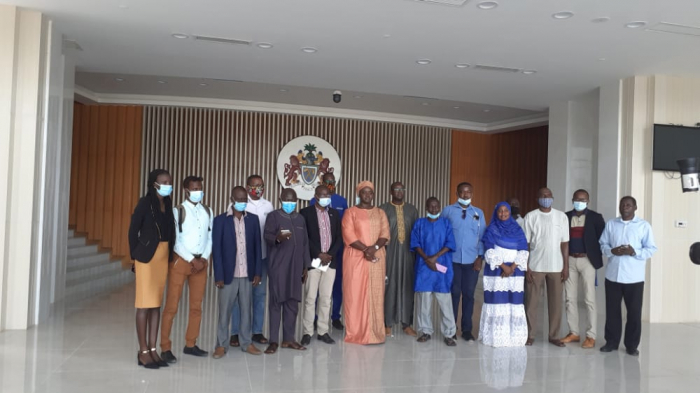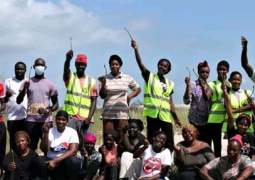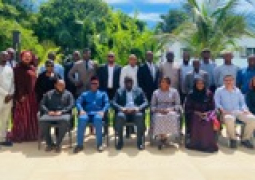
The validation was held at Sir Dawda Kairaba Jawara International Conference Hall (OIC) in Senegambia.
Addressing the gathering, Mbaye Jabang, permanent secretary at the Ministry of Environment Climate Change and Natural Resources recalled that in 2017 his ministry developed a Strategy Programme for Climate Resilience (SCPR) with support from the Climate Investment Funds (CIF) of the World Bank.
This SPCR, he said, is a 25-year strategy investment plan focusing on climate change adaptation across all the sectors of The Gambia, saying the global climate has changed in an unprecedented rate with the African continent identified as one of the most vulnerable continent to climate effects.
PS Jabang noted that as part of the second phase of the process, MECCNAR contacted two consultancy firms, RMSI Ltd, an Indian consulting firm and AGRER BV.
He explained that the RMSI consultancy carried out vulnerability assessment and analysis studies that informed the implementation of The Gambia’s Strategy Programme for Climate Resilience, while the AGRER consultancy prepared a concept note and proposal.
PS Jabang indicated that The Gambia is widely acknowledged as one of the most vulnerable countries in Africa to the impact of climate change and has been experiencing natural disasters including drought related to crop failure.
“The Gambia coastline especially the capital city of Banjul makes the country highly vulnerable to the impact of coastal erosion and sea level rise. In the longer term impact of climate change on communities and livelihoods exposed much rural settlement to a wide range of risk. These are often not handling in the right way, because we are ill equipped to handle them properly. Rural and urban communities lose their livelihoods and often this place suffered physical damages and related health problems.” he added.
He continued, “At the national level, very important steps have been taken to address the effects of climate change. These include the establishment of National Climate Change Committee, National Capacity Assessment , as well as Nationally Appropriate Mitigation Action.”





